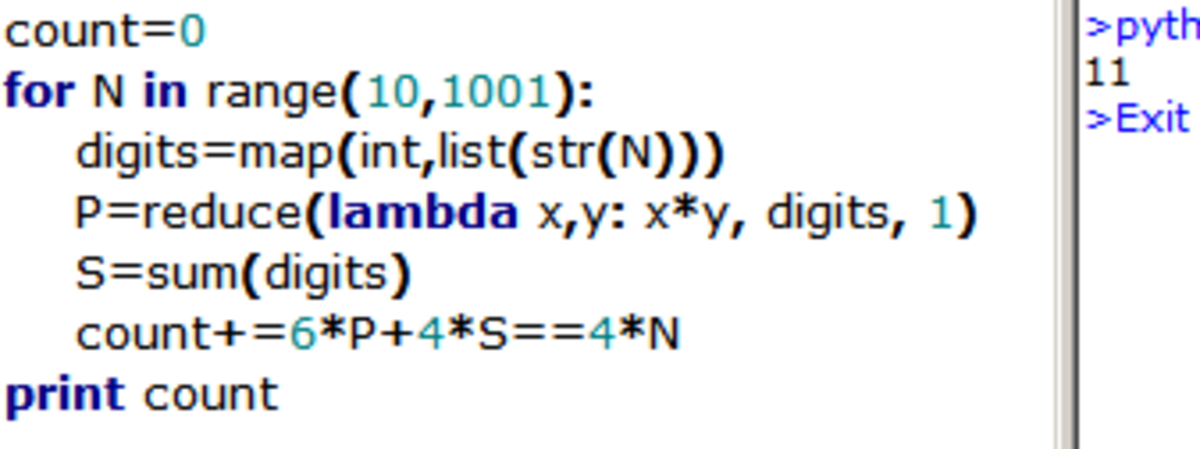Not Vieta's
is a natural number between 10 and 1000. denotes the product of its digits and denotes the sum of its digits. If , how many values can N take ?
You can try more of my Questions here .
The answer is 11.
This section requires Javascript.
You are seeing this because something didn't load right. We suggest you, (a) try
refreshing the page, (b) enabling javascript if it is disabled on your browser and,
finally, (c)
loading the
non-javascript version of this page
. We're sorry about the hassle.

The values that N can take are 16, 26, 36, 46, 56, 66, 76, 86, 96, 889, and 998.